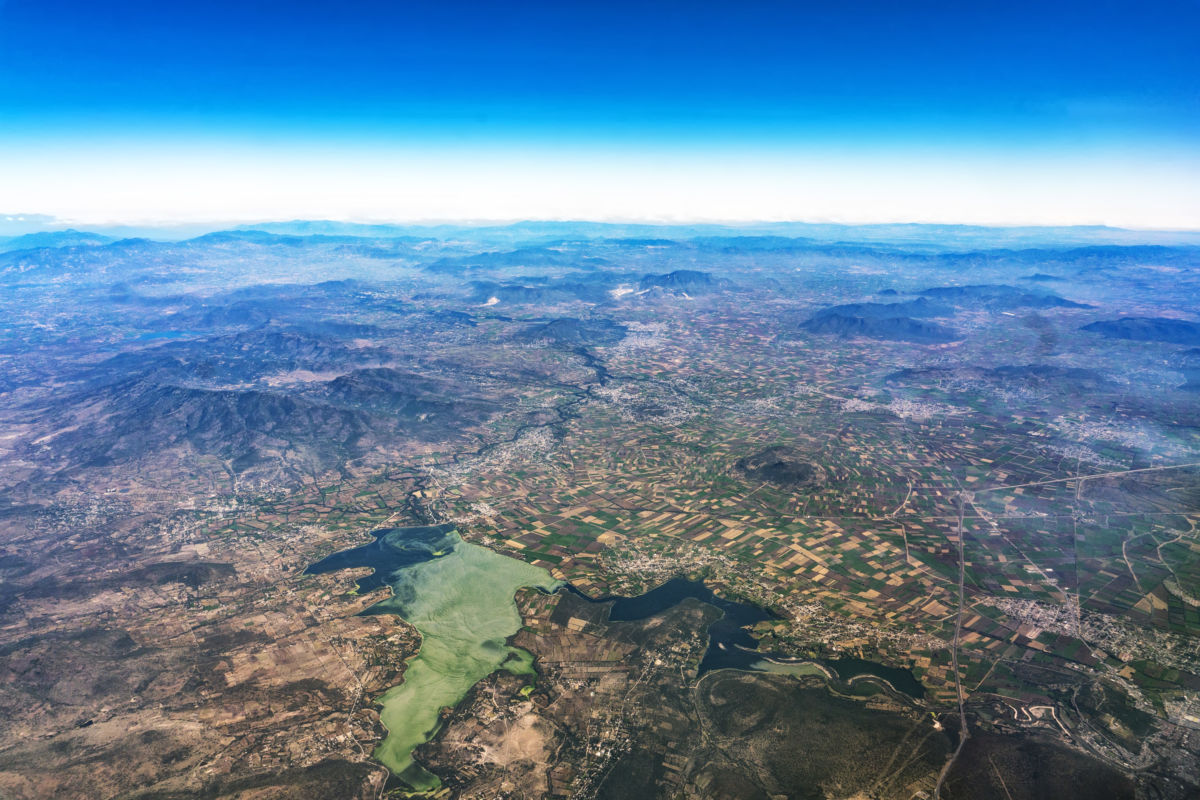Did you know that Truthout is a nonprofit and independently funded by readers like you? If you value what we do, please support our work with a donation.
An extraordinary event has occurred in the heart of Mexico with little attention from global mainstream media. The ancient Lake Texcoco has been a site of cultural, economic and physical conflict for more than 500 years. Its most recent battle is between the Mexican government and a coalition of citizens resisting the construction of a vast, $13 billion mega-airport on the outskirts of Mexico City.
Mexico City’s New International Airport, known as NAICM for its Spanish abbreviation, was projected to increase flights up to 125 million passengers a year by 2062 in a country where only about 30 percent of the population has ever flown. The most directly affected community is the largely Indigenous farming population in the area of Atenco (which means “by the edge of the water” in Nahuatl), whose livelihood and culture depends on the local ecology.
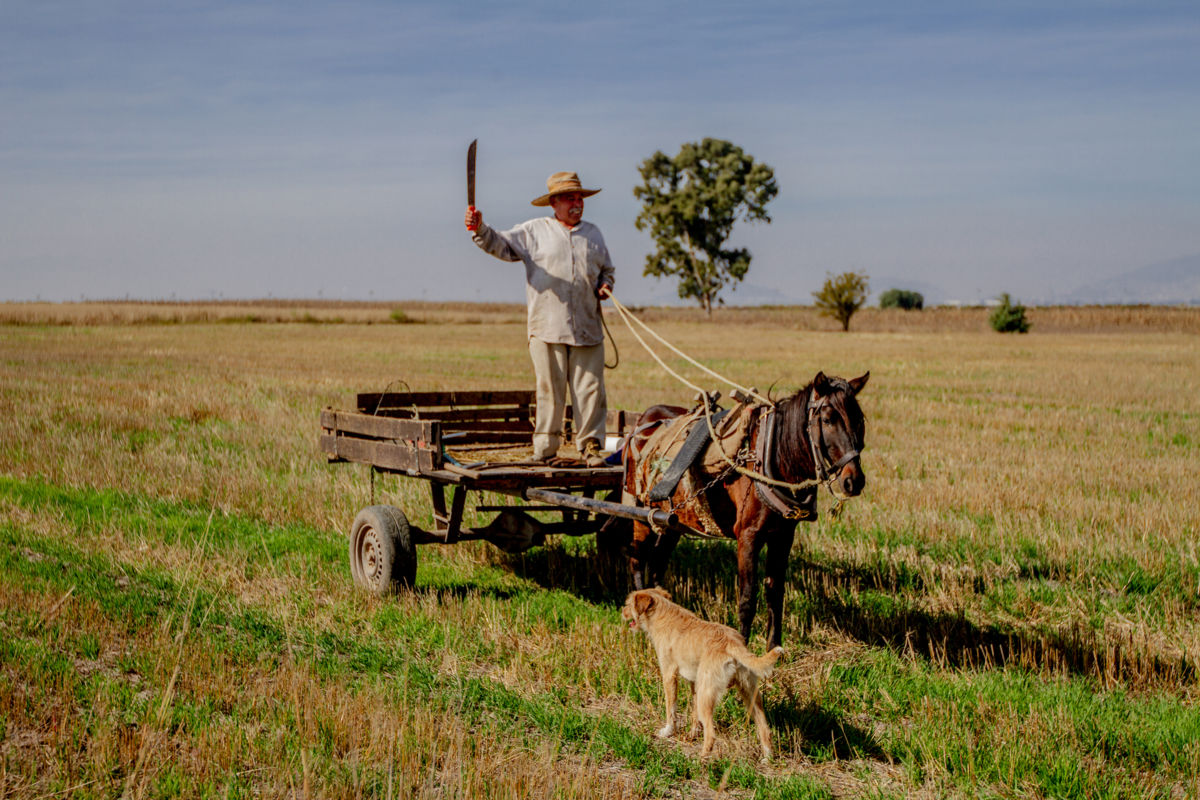
The community of Atenco has brought attention to the destruction of the sacred wetlands, the displacement of tens of thousands of Indigenous peoples and rural farmers, and the theft of communal land through nefarious land grabs.
The Mexican government and corporations’ ground-laying work alone, initiated without due process or consultation, has caused dozens of illegal open-air mines to extract tezontle (a type of rock common in the area) to fill the lakebed, the habitat destruction of more than 250 species of birds, and the drying out of nine healthy rivers and a major ecological reserve.
In the face of overwhelming odds and a strong, coordinated capital-government complex, the community of Atenco found a way to shift the dominant public narrative and win the battle, stopping the construction of Latin America’s largest megaproject. Moreover, the Mexican government has recently announced that it will consider transforming the proposed airport site into a public park, an ecological and symbolic win for the community and country at large.
As activists and journalists who supported the campaign, we have distilled three major lessons for progressive movements around the world.
1. The Power of Long-Term Organizing
The community of Atenco has built “organizing infrastructure” for the past 17 years. The rural farmers and peasants have long been aware that capital interests have been looking to privatize and extract the value of their land. In response, the community focused considerable time and effort on nurturing strong community ties. They knew what many activists around the world know: The only thing that can hope to withstand the demands of capital is strong communities that know that the safety and power of each is bound up in the safety and power of all.

In practice, this has meant weekly assemblies (gatherings for group decision-making); continuous education and awareness work with the larger community; and the deliberate sharing of tactics, knowledge and lessons with other social movements across Mexico. Atenco has used every attack against the community as a moment to build a stronger movement.
In 2001, community members of Atenco formed the People’s Front in Defense of Land as an umbrella organization to unite the struggle. The organization’s ability to organize and spread their message led to the incoming administration of Andres Manuel Lopez Obrador to change its public position in support of the airport, and then organizers pushed the government to hold a referendum to decide the airport’s fate. The People’s Front utilized the moment to activate their existing communities and influence public opinion. They brought together a coalition of civil society organizations, farmers, peasants, students and artists under the rubric of #YoPrefieroElLago, or “We prefer the lake.” This became a rallying cry for choosing another way of life against the machine of modernity.
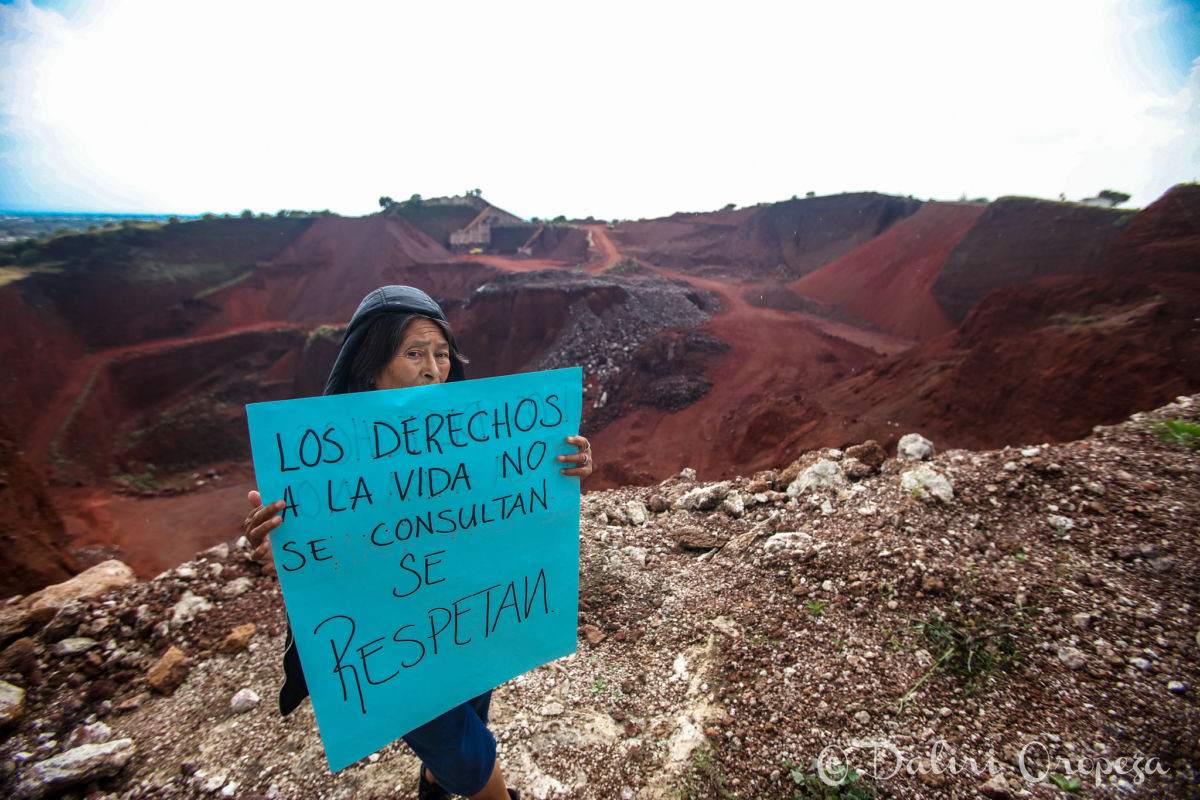
The results have been staggering. The campaign sparked nationwide interest; pop culture amplification, from music videos to parodies; and helped secure a 70 percent vote in favor of preserving the lake, ensuring the airport will not be built in Atenco. In a world with increasing totalitarian, oligarchic and corporate control, this citizens’ win in Mexico gives us much needed source-material for inspiration and hope.
2. The Power of Animism
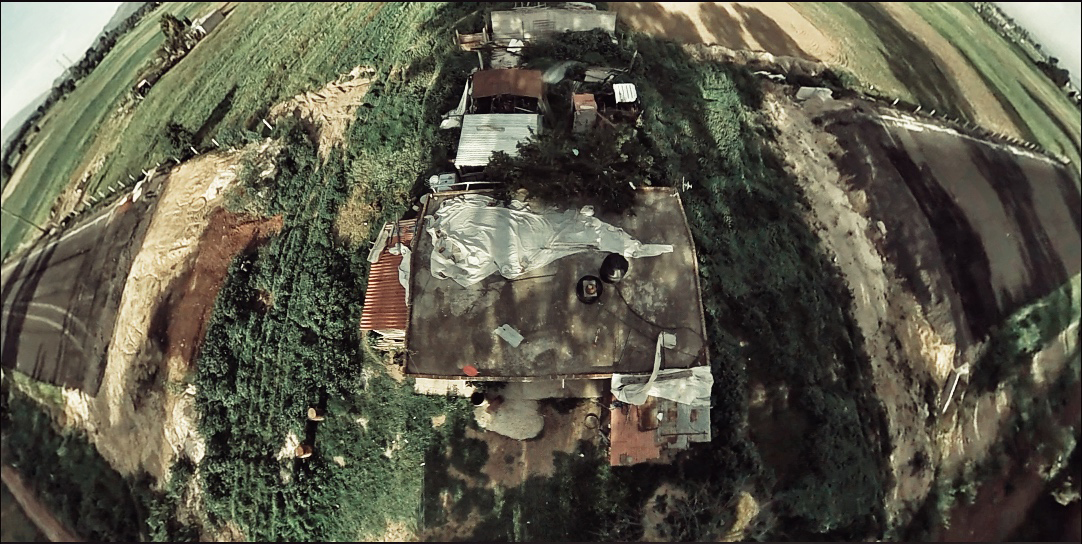
One of the key pillars of the #YoPrefieroElLago campaign was the now infamous “Letter of the Lake.” Originally, a small number of community members came together to express what they felt was the voice of the lake, mourning our disconnection from nature and asking critical questions such as, “Why do they want to bury me?”
The letter reached a broader audience when local journalists, photographers and artists worked with the communities to tell the lake’s story. The letter was recorded and brought the voice of a living lake, with its own active identity, into the public discourse. This even shifted the way supporters thought of themselves. They signed the open letter, “the people by the lake.”
Telling this animistic story of a living planet helps to reframe and challenge the standard argument that growth without question is good, to one that pits this kind of growth against life. It also reorients the relationship between people and their land. The people from Atenco insist, “We want to work our land, not wash the airport’s restrooms for a living.”
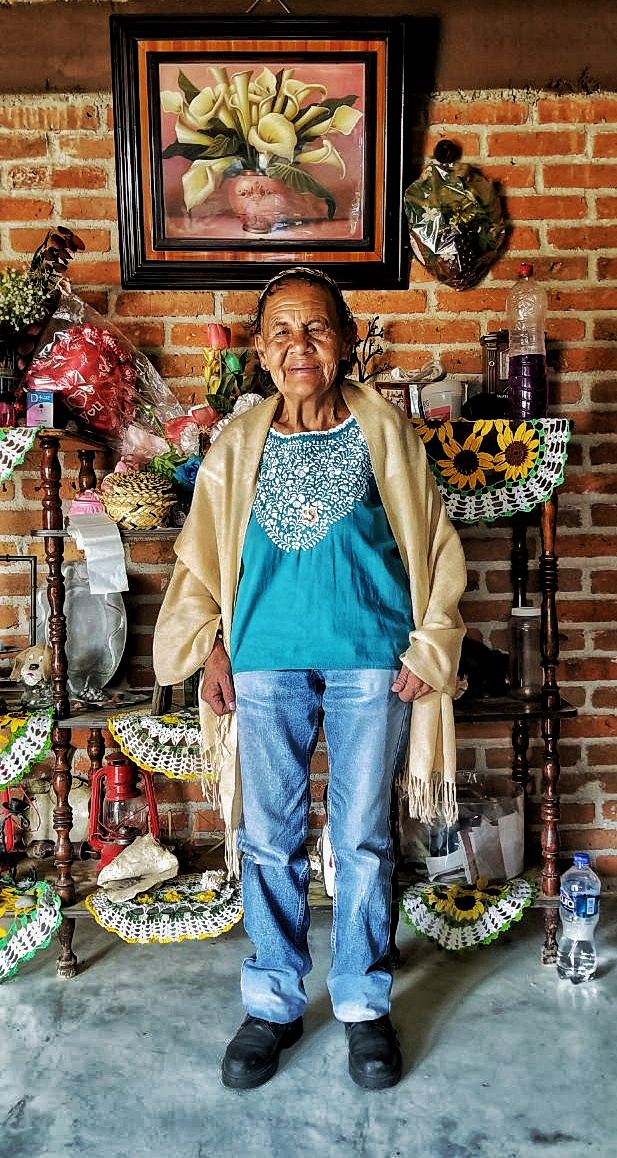
From North Dakota to Bhutan, social movements are merging Indigenous wisdom with “traditional activism” to reconnect with the power and spirits of their lands. This is a powerful rallying cry for a generation of young people that feel displaced, precarious and culturally homeless.
3. The Power of Connecting the Dots

A decisive event occurred just before the referendum began. As the government started to build a new access highway for the airport, they assumed that purchasing land from the community was just a matter of price. They were wrong.
Nieves Rodríguez, a long-time community member and elder, stood up to the government. Her house was literally in the middle of the proposed highway. Her answer to both the government and media was very simple: She doesn’t believe in capitalism. There was no amount of money that could make her complicit in destroying her community’s sacred lake and her ancestral home.
Death threats followed, and in Mexico, death threats are never to be taken lightly. But rather than buckle under the pressure, Rodríguez’s courage drew activists from around Mexico to co-occupy her house, creating an encampment that brought both attention and safety in numbers. The house became an icon of the campaign and the core of a new narrative.

The Atenco community put its values front and center — localism, interdependence, communalism, and recognition of the communities’ deep and sacred relationship to the lake. In essence, life itself was their organizing principle, and it stood in sharp contrast to the driving logic of the airport: economic growth at all costs.
“Many elders are saying to their children, ‘What are you doing with your lives?’ They’re encouraging them to go to elite schools and get corporate jobs. We are saying to our children that they should not participate in a capitalist system that destroys life,” said community elder Doña Filly during a celebration at the Rodríguez property after the decision to stop construction was announced. “Our jobs are to create strong local communities and economies: to create food sovereignty, to prepare for the difficult transition that is being forced upon the planet by the forces of capital.”
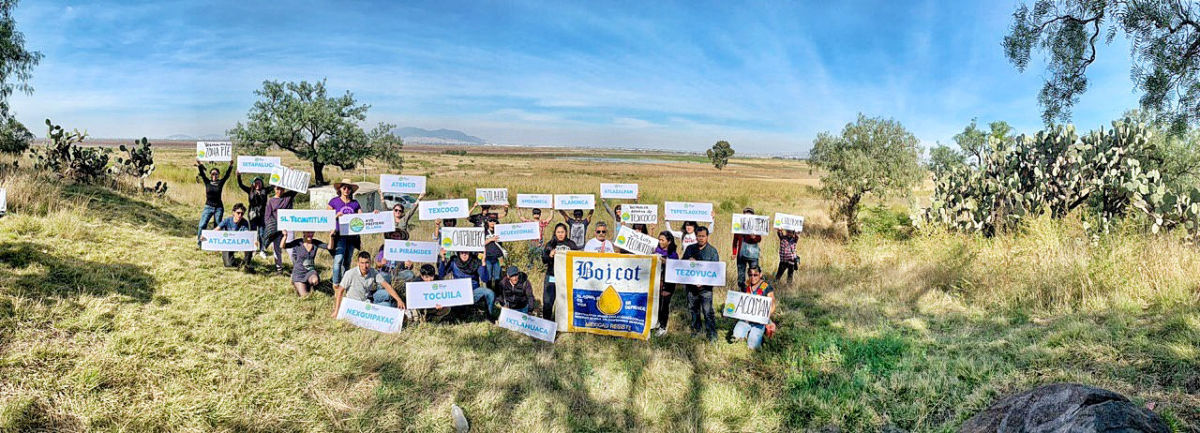
By broadening their story to a systemic level and telling a more inspiring counternarrative, the Atenco community bypassed the traditional media’s ability to marginalize their struggle. Atenco was not just opposing another local development project; they were speaking to the hearts of the Mexican people, who inherently understand that the old system is broken. This allowed Atenco to seize the political moment as others could increasingly identify and empathize with their struggle. As a result, they also garnered support from resistance movements and communities around the world.
These three lessons from Lake Texcoco can serve as pillars that movements around the world can adopt to create alternative narratives for a post-capitalist world.
Trump is silencing political dissent. We appeal for your support.
Progressive nonprofits are the latest target caught in Trump’s crosshairs. With the aim of eliminating political opposition, Trump and his sycophants are working to curb government funding, constrain private foundations, and even cut tax-exempt status from organizations he dislikes.
We’re concerned, because Truthout is not immune to such bad-faith attacks.
We can only resist Trump’s attacks by cultivating a strong base of support. The right-wing mediasphere is funded comfortably by billionaire owners and venture capitalist philanthropists. At Truthout, we have you.
Truthout has launched a fundraiser to raise $50,000 in the next 9 days. Please take a meaningful action in the fight against authoritarianism: make a one-time or monthly donation to Truthout. If you have the means, please dig deep.
